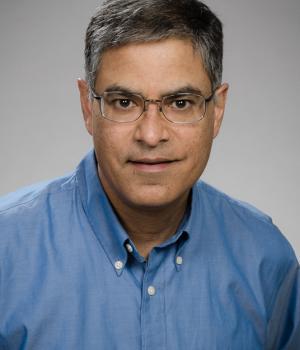Pradeep Singh
Pradeep Singh
My research focuses on the biofilm mode of bacterial growth. In many chronic infections bacteria live in biofilms rather than as free-living individual organisms. Biofilms are communities of bacteria, living associated with a surface, encased in a polymeric matrix. Biofilm infections include bacterial endocarditis; osteomyelitis; certain skin, urinary and biliary tract infections; dental caries; and most medical device infections. A prototypical example of a biofilm disease is the chronic P. aeruginosa airway infections that afflict patients with cystic fibrosis and other forms of bronchiectasis. Like other biofilm diseases, these infections are extremely difficult to eradicate.
Currently our work focuses on the following areas: We have found that short-term biofilm growth generates extensive genetic diversity in biofilm bacteria, and this process increases the ability of the biofilm community to withstand physiological stress. We are investigating the mechanisms that produce this diversity. We are also studying mechanisms through which bacteria leave established biofilms, and return to the free living state. Interestingly, biofilm bacteria themselves possess active mechanisms to separate from biofilms, and it is possible that these mechanisms could be exploited in therapeutic approaches. We are also investigating other agents that have the potential to inhibit biofilm formation.
